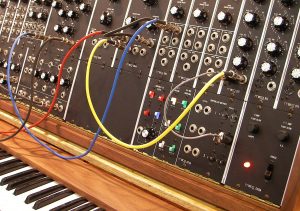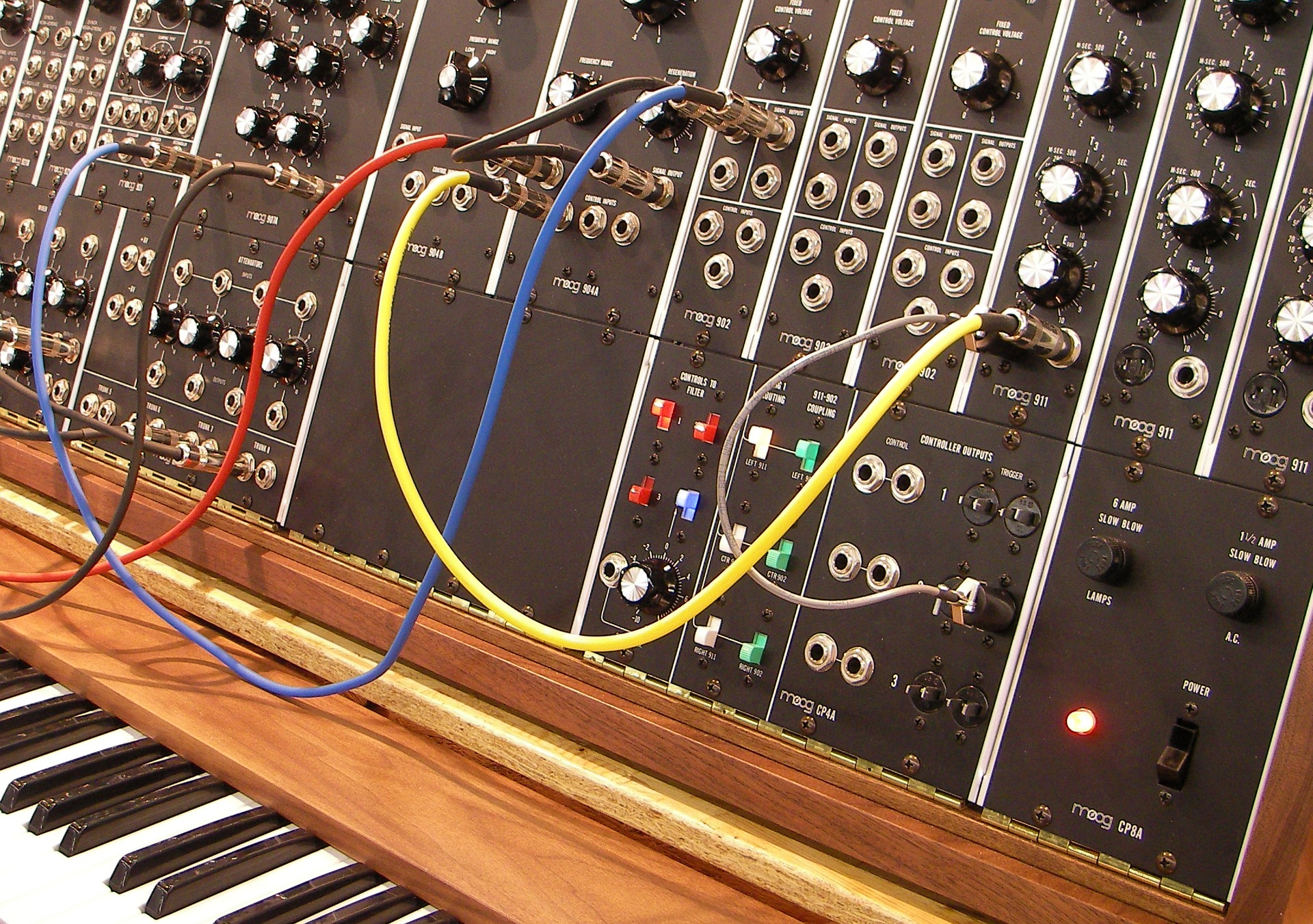For Transgender Awareness Week we wanted to highlight a truly innovative individual from classical music, Wendy Carlos. During her 40 year career, she has pioneered new technology and been wildly successful, while also being true to herself and inspiring the LGBTQ community with her openness about transitioning. Read below about her recording career, success as a composer, and reflections on her life.
Wendy Carlos: Innovator, Composer, Pioneer
Wendy Carlos is an influential electronic musician and film score composer, as well as a transgender pioneer. She was born in Rhode Island November 14, 1939 as Walter Carlos, and is the musician behind the three-time Grammy winning album, Switched-On Bach. Carlos is most famous for the success of her first album, which was the second ever classical album to go platinum, and for pioneering the use of synthesizers in classical music.

Moog Synthesizer
Switched-On Bach utilized the Moog Synthesizer, a new device at the time in 1968. The album was tedious to record since the synthesizer used was a monophonic device – it could only play one note at a time, unlike modern electronic pianos which can play chords. This meant, in order to successfully record Bach’s music, Carlos had to record multiple takes of each voice and then layer the takes over each other to create the harmony of Bach’s music. This process required the utmost precision to produce a quality recording.
Although the Moog Synthesizer was not the first synthesizer ever created, it was the first to experience commercial success, and Wendy Carlos was an important contributor to this popularity. Part of what made synthesizers so fascinating during the 60s and 70s is that the devices created vibrations (soundwaves) purely through electronic circuits, unlike electric guitars, which have a sensory device called a pickup that reads vibrations from the strings and then converts this reading into electric signals that are sent to an amp. We take for granted that electronic keyboard instruments are commonplace in 2017, but in the 60s synthesizers were truly innovative.
Carlos always had a knack for science and began her university studies as a physics major before switching to music. Her love of science, combined with her innate creativity, probably drew her to the synthesizer. After the success of her first album, she went on to compose and record eleven more albums that consisted of a combination of previously composed works reimagined for synthesizer and original compositions by Carlos herself. She also composed film scores for three monumentally successful films: A Clockwork Orange (1971), The Shining (1980), and Tron (1982) – the latter of which combined electronic music with orchestral music (listen below).
Carlos’ career achievements earned her three Grammy Awards and the Lifetime Achievement Award from the Society of Electro-Acoustic Music in the United States (SEAMUS). She is also the personal hero to many in the LBGTQ community for being openly transgender during a time when the public was far less accepting. She is one of the first public figures to share undergoing gender reassignment surgery. Carlos stated in an interview with Playboy magazine “I was about five or six… I remember being convinced I was a little girl, much preferring long hair and girls’ clothes, and not knowing why my parents didn’t see it clearly.”
Despite being a celebrity, especially in the classical music and electronic music world, Wendy Carlos has kept most of her personal life quiet over the years, which makes her openness about being trans so inspiring to those who fear coming out. In a 1985 interview with People magazine, Carlos reflected, “The public turned out to be amazingly tolerant or, if you wish, indifferent … There had never been any need of this charade to have taken place. It had proven a monstrous waste of years of my life.”
Wendy Carlos’ music influenced generations of musicians and her story is an inspiration to the LBGTQ community. Whether you are in the mood to have your skin crawl with her score to The Shining or to be uplifted by hearing Bach’s music performed on an electronic instrument, Carlos’ music is definitely worth investigating. Thanks Wendy, for all you have done!
To learn more about Wendy Carlos visit her website, and to see archival photos from her career go here.







Leave a Reply